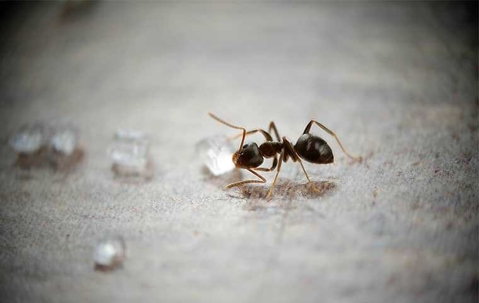Ants are the most common pests in Los Angeles homes. Most people might not consider them serious threats to their health and safety but still prefer to keep them outside. These insects can fit through tiny cracks and gaps in your exterior, contaminating food and surfaces.
While closing the cracks in your exterior can help prevent intrusions, removing attractants will deter them. However, you’ll need professional ant control in Los Angeles when they find entry into your home. Read on to find out how ants enter buildings, why they invade, and how to keep them out.
Detecting An Ant Problem In Your Los Angeles Home
Most people only discover ants in their homes when they see long lines entering their kitchens or bathrooms. However, the tiny size of ants enables these insects to enter through cracks and avoid detection. It might be hard to spot these intruders, but other things indicate their presence.
Several types of ants live in Southern California, and the signs of their existence depend on the species. Fortunately, all ants leave some indications of their presence, enabling residents to discover them. Common signs of ants in your Los Angeles home include:
- Ants on wires, utility lines, pipes, or along your foundation
- Piles of soil or dirt in your yard
- Discarded wings
- Noises behind walls
Recognizing ants in your home is the first step to eliminating these pests, but they can be hard to find and remove. For this reason, you’ll need professional help to create an ant-free home.
What Attracts Ants To Los Angeles Homes?
Ant colonies are often in yards and number in the thousands. The workers find food and water to supply others in the nest, and the sole reason for ant infestations is to find these essentials. The initial ants in your house will leave a chemical trail for others to follow, directing them to where they find nutrients.
While you know that ants invade homes for food and water, these facts won’t help you discover vulnerable rooms. You also need to know the common attractants. Some of the things that attract ants to Los Angeles homes include:
- Spills
- Sugary foods
- Leaks
- Pet food
As you might expect, kitchens and bathrooms are the most common places that provide these attractants. However, leaks and spills can happen in multiple places, drawing ants to these areas.
Avoid Ant Problems Before They Start With These Tips
Since ants can fit through tiny spaces in your exterior, they’re hard to keep out of your home. However, removing attractants and reducing entry points will cause them to look elsewhere for necessities. Ant prevention tips for your Los Angeles home include:
- Repair leaks.
- Close cracks in your exterior.
- Store your food in closed containers.
- Remove your garbage regularly.
Even if you follow these steps, finding all entry points and removing food and water sources is difficult. Even with these tips, you still might notice lines of ants entering your home. In that case, you’ll need professional help to get rid of ants on your property.
Why Professional Ant Control Is Always The Best Solution
Long-term ant control is difficult because these pests leave chemical trails for others to follow, leading them to food and water sources. As a result, ants from the colony will continue invading your home no matter how many you eliminate. The answer to this problem is professional assistance because experts will eliminate the trails and the ants at the nest.
At The PEST Group, our ant pest control services begin by inspecting your foundation cracks, plumbing lines, and possible entry points. Our treatment method involves a combination of liquid, bait, gel, and dust treatments, and we’ll follow up 15 days after our initial visit to check for problems. Let us know if you need help with ants in your Los Angeles home.
Our certified pest experts will work with you to find the best solution for your needs. Simply fill out this form for a free, no-obligation estimate.

